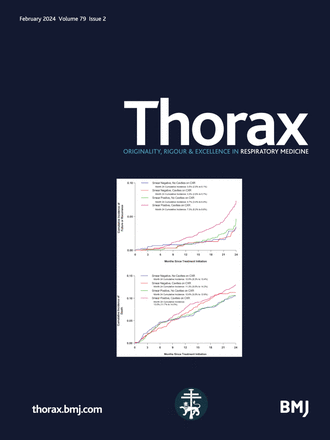期刊俱乐部
IF 9
1区 医学
Q1 RESPIRATORY SYSTEM
引用次数: 0
摘要
据估计,全球每年有 320 万人死于家庭空气污染。生物质暴露和环境污染与呼吸道疾病的恶化有关,对中低收入国家的健康影响尤为严重。Puzzolo 等人(《柳叶刀呼吸医学》,2024 年;12(4):281-293)进行了一项系统性回顾,并在随后的荟萃分析中纳入了 116 项研究,以比较在家庭环境中使用气体燃料与污染较严重的燃料(木材/木炭/煤油)和无使用点污染的较清洁燃料(电力/太阳能)。与污染较严重的燃料相比,使用燃气可大大降低慢性阻塞性肺病(OR 0-37,95%CI 0-23-0-60;p<0-0001)、肺炎(OR 0-54,0-38-0-77;p=0-0008)、肺功能缺陷(OR 0-27,0-17-0-44;p<0-0001)、严重呼吸系统疾病或死亡(OR 0-27,0-11-0-63;p=0-0024)的风险。早产(OR 0-66,0-45-0-97;p=0-033)和低出生体重也同样减少(OR 0-70,0-53-0-93;p=0-015)。哮喘风险未达到统计学意义。与用电相比,燃气确实会增加慢性阻塞性肺病(OR 1-15,1-06-1-25;p=0-0011)和肺炎(OR 1-26,1-03-1-53;p=0-025)的风险,但这在所有研究中都不显著。在没有天然气的国家,从污染更严重的燃料改用天然气虽然会对健康和环境造成影响,但可能会减轻健康风险负担。本文章由计算机程序翻译,如有差异,请以英文原文为准。
Journal club
Household air pollution has been estimated to be responsible for 3.2 million preventable deaths every year globally. With biomass exposure and environmental pollution linked to exacerbations of airways disease, this health impact disproportionately affects low and middle income countries. Puzzolo et al ( Lancet Resp Med 2024;12(4):281–293) undertook a systematic review and included 116 studies in the subsequent meta-analyses, to compare use of gaseous fuels in the domestic environment with more polluting fuels (wood/charcoal/kerosene) and cleaner fuels (electricity/solar) with no point of use pollution. Use of gas significantly decreased the risk of COPD (OR 0·37, 95%CI 0·23–0·60; p<0·0001), pneumonia (OR 0·54, 0·38–0·77; p=0·0008), deficits in lung function (OR 0·27, 0·17–0·44; p<0·0001), severe respiratory illness or death (OR 0·27, 0·11–0·63; p=0·0024) compared with more polluting fuels. Preterm births (OR 0·66, 0·45–0·97; p=0·033), and low birth weights were similarly reduced (OR 0·70, 0·53–0·93; p=0·015). Risk of asthma did not reach statistical significance. Gas compared with electricity did increase risk of COPD (OR 1·15, 1·06–1·25; p=0·0011) and pneumonia (OR 1·26, 1·03–1·53; p=0·025) but this was not significant in all studies. While having its own health and environmental impacts, switching to gas from more polluting fuels may reduce the burden of health risk in countries without …
求助全文
通过发布文献求助,成功后即可免费获取论文全文。
去求助
来源期刊

Thorax
医学-呼吸系统
CiteScore
16.10
自引率
2.00%
发文量
197
审稿时长
1 months
期刊介绍:
Thorax stands as one of the premier respiratory medicine journals globally, featuring clinical and experimental research articles spanning respiratory medicine, pediatrics, immunology, pharmacology, pathology, and surgery. The journal's mission is to publish noteworthy advancements in scientific understanding that are poised to influence clinical practice significantly. This encompasses articles delving into basic and translational mechanisms applicable to clinical material, covering areas such as cell and molecular biology, genetics, epidemiology, and immunology.
 求助内容:
求助内容: 应助结果提醒方式:
应助结果提醒方式:


